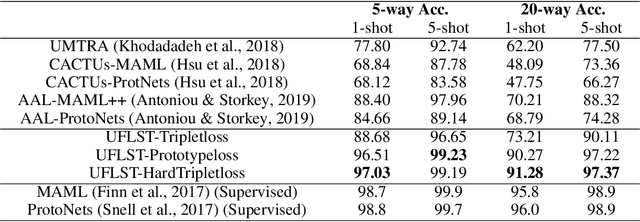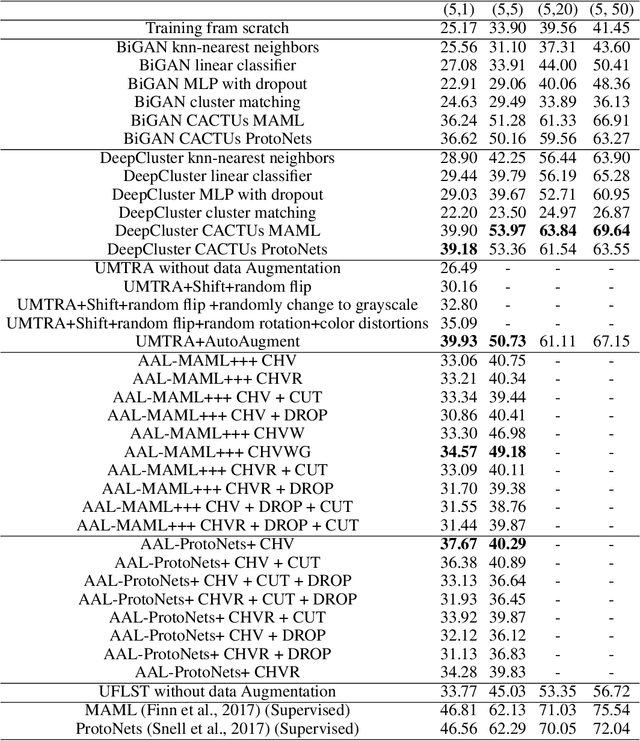Unsupervised Few-shot Learning via Self-supervised Training
Paper and Code
Dec 20, 2019



Learning from limited exemplars (few-shot learning) is a fundamental, unsolved problem that has been laboriously explored in the machine learning community. However, current few-shot learners are mostly supervised and rely heavily on a large amount of labeled examples. Unsupervised learning is a more natural procedure for cognitive mammals and has produced promising results in many machine learning tasks. In the current study, we develop a method to learn an unsupervised few-shot learner via self-supervised training (UFLST), which can effectively generalize to novel but related classes. The proposed model consists of two alternate processes, progressive clustering and episodic training. The former generates pseudo-labeled training examples for constructing episodic tasks; and the later trains the few-shot learner using the generated episodic tasks which further optimizes the feature representations of data. The two processes facilitate with each other, and eventually produce a high quality few-shot learner. Using the benchmark dataset Omniglot and Mini-ImageNet, we show that our model outperforms other unsupervised few-shot learning methods. Using the benchmark dataset Market1501, we further demonstrate the feasibility of our model to a real-world application on person re-identification.
 Add to Chrome
Add to Chrome Add to Firefox
Add to Firefox Add to Edge
Add to Edge